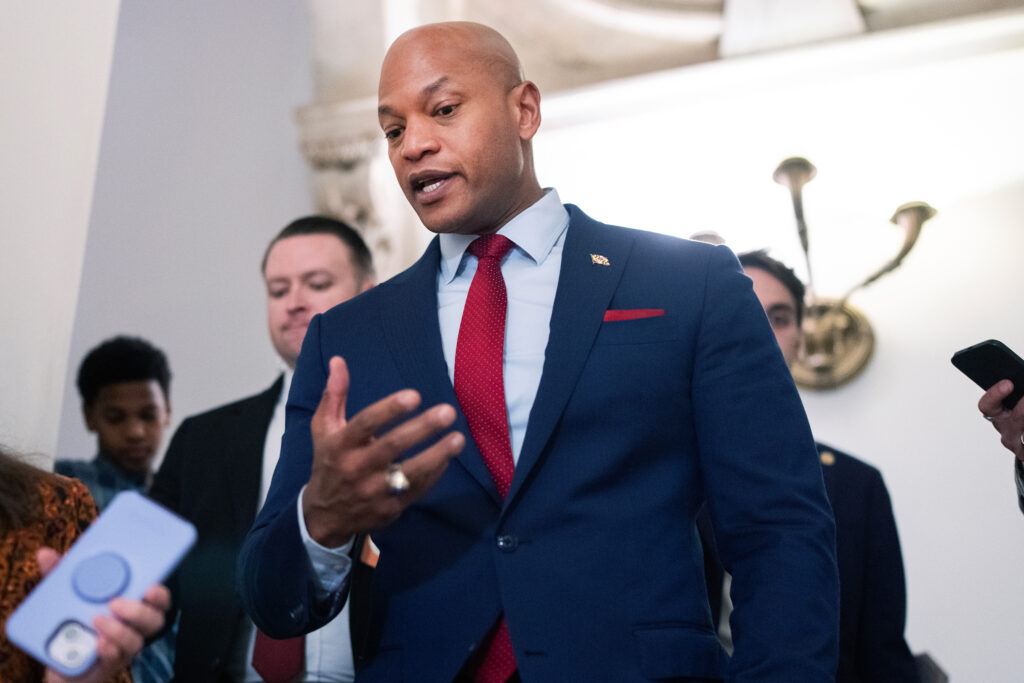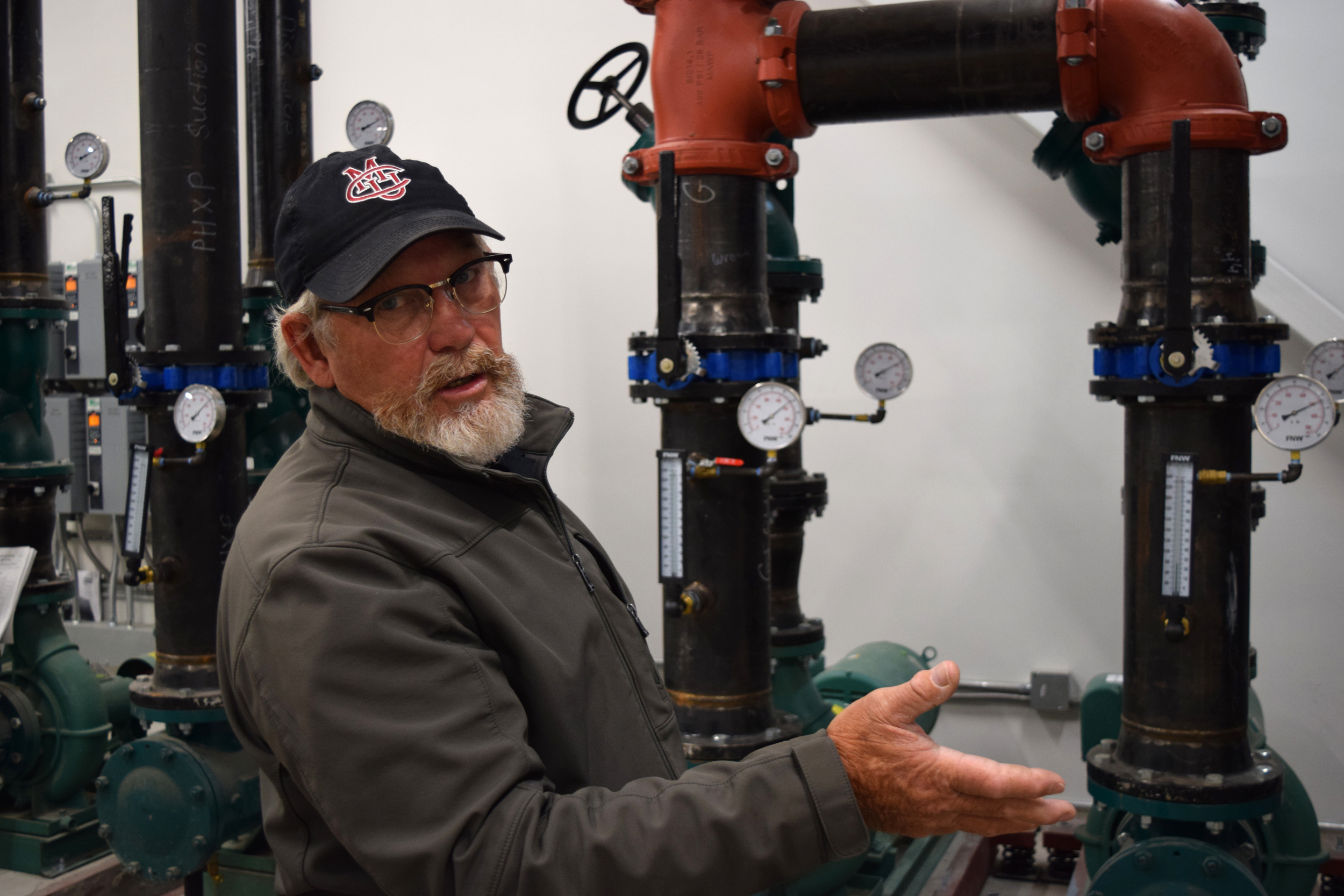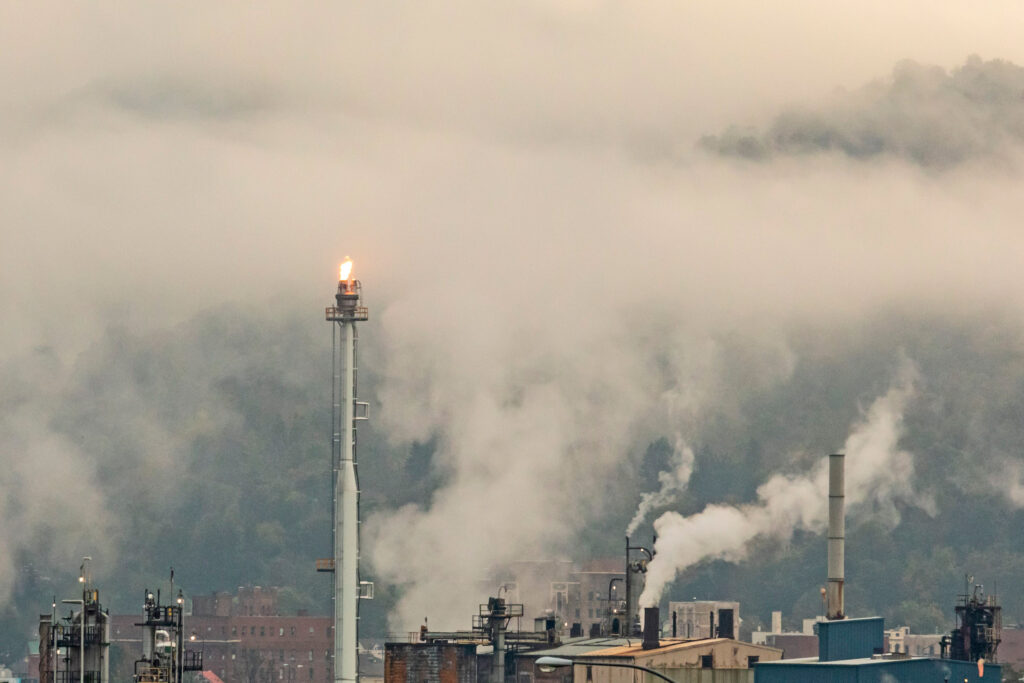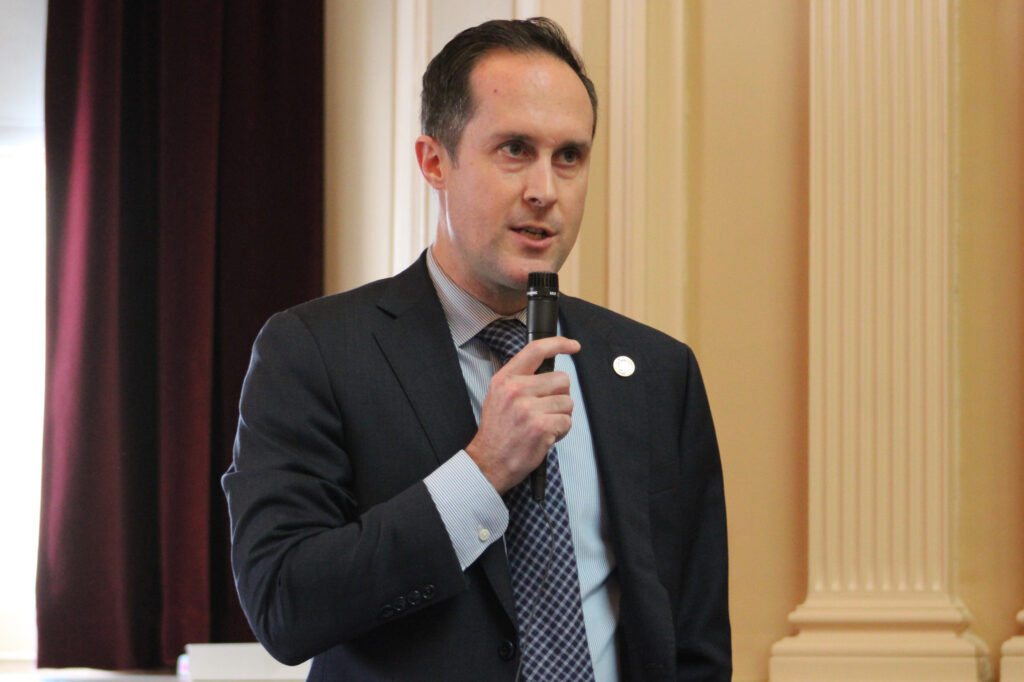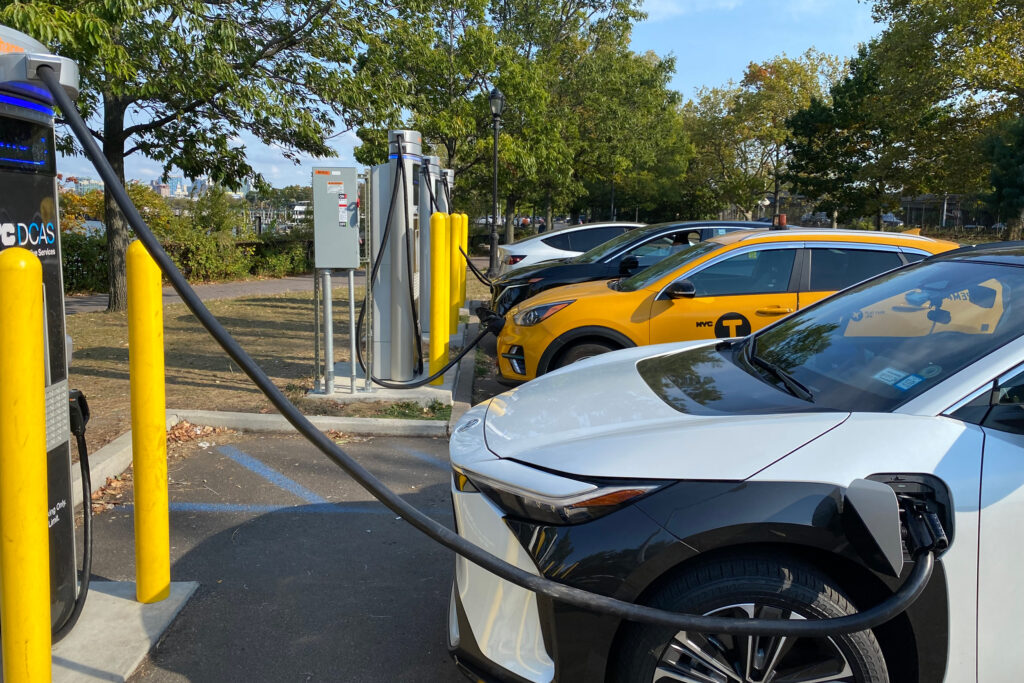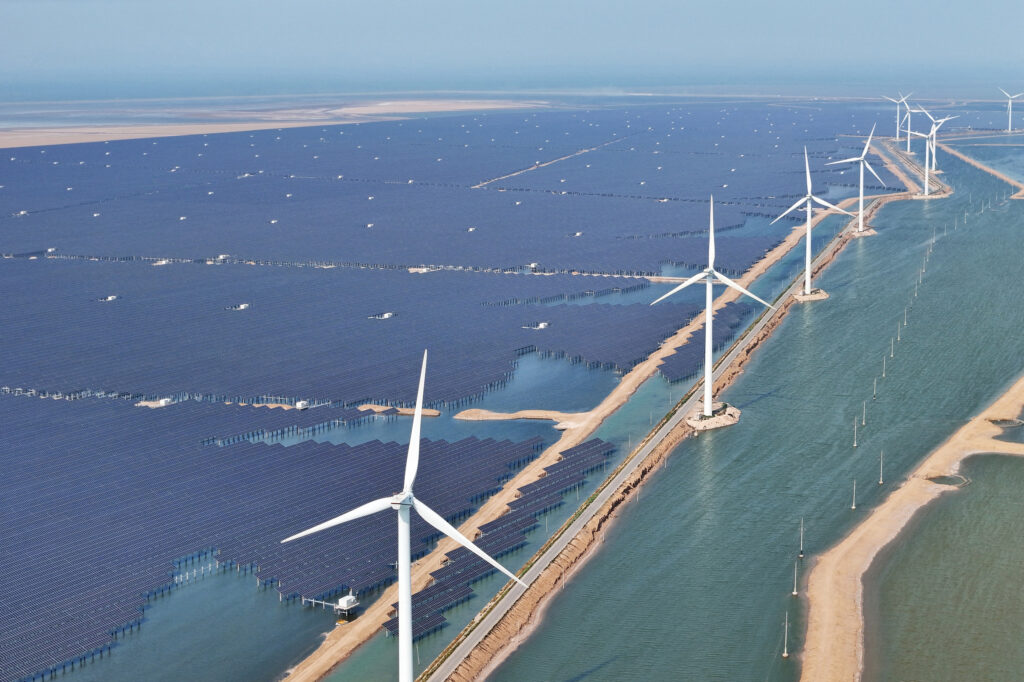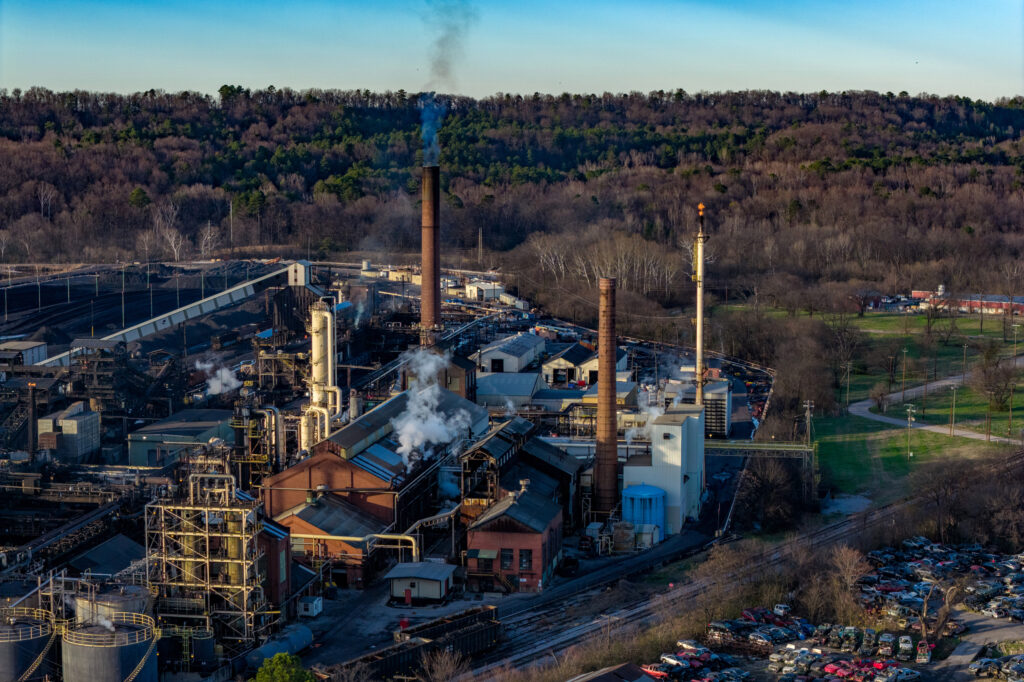Scott Walker’s disdain for climate-friendly policies was no secret.
During his tenure as Wisconsin’s governor from 2011 to 2019, he eliminated state clean energy programs, slashed environmental agency budgets and made it more difficult for state employees to use peer-reviewed climate studies to inform policy decisions.
Walker, a staunch Republican who made a name for himself by championing anti-union policies, even made a point during his 2016 presidential campaign to aggressively attack then-President Barack Obama’s Clean Power Plan, which aimed to curb greenhouse gas emissions from the nation’s power plants.
“It will be like a buzz saw on the nation’s economy,” Walker said in a statement from the campaign trail.
Walker’s hostility toward clean energy is one reason Wisconsin continues to lag behind many of its Midwest neighbors when it comes to renewables, clean energy advocates say. Just 12 percent of the state’s electricity came from renewable sources this March, according to the Energy Information Administration, compared to 21 percent of Illinois’ electricity mix, 40 percent of Minnesota’s and 84 percent of Iowa’s.
Explore the latest news about what’s at stake for the climate during this election season.
But Wisconsin politics have changed since Walker’s time in power. Gov. Tony Evers, a Democrat and a former state superintendent, has spent the last six years dismantling some of his predecessor’s most controversial policies and taking a different tack on renewable energy.
Under Evers, state regulators have approved 3,976 megawatts of solar projects in Wisconsin, enough energy to power nearly 1 million of the state’s 2.7 million homes, the Cap Times reported in February. And this year alone, Wisconsin is on track to add another 950 megawatts of new solar capacity, with electric providers planning to build an additional 6,000 megawatts of solar and 1,600 megawatts of wind by 2030, according to the state’s draft energy assessment, released late last month.
“We had a few wind projects and some very small solar projects online before 2019. But we have indeed seen a monumental jump in those projects,” said Sam Dunaiski, executive director of clean energy advocacy nonprofit RENEW Wisconsin. “And from all accounts, it looks like we are going to continue on that path.”
Building out renewables in Wisconsin, however, hasn’t been a simple task, in part because of the nation’s increasingly polarizing culture wars. That’s forcing some Democrats, including Evers, to make the issue of clean energy more about the economy and less about climate change.
‘Such a Toxic, Difficult Topic’
Scott Coenen had a tough job as the former executive director of Wisconsin Conservative Energy Forum. While the right-leaning organization advocates for renewable energy, it also sees the issue of “climate change” as a political third rail in purple Wisconsin.
“One of our goals is to extricate renewable energy from that discussion,” Coenen told local media in 2018. “It’s just such a toxic, difficult topic, where everybody has become polarized. We need to remove renewable energy from that and make it about the economy and jobs. And, sure, we will take any environmental benefits on the side.”
In Democrat-run battleground states, such as Wisconsin and Pennsylvania, politicians have been forced to thread the needle when it comes to enacting climate policy. The price of solar and wind energy—both the materials and the installation costs—has fallen drastically over the decades, making arguing against them as sound investments far more difficult for lawmakers.
But officials in purple states often find themselves tempering their stance on climate change, or avoiding the topic altogether, instead focusing on the economic gain of pursuing certain policies, said Barry Rabe, a political scientist and professor at the University of Michigan’s Ford School of Public Policy. “About 20 years ago,” he said, “you did not see the kind of cultural tensions over climate [that you do today].”
Rabe pointed to Pennsylvania’s most recent gubernatorial race as an example. “The current governor, Josh Shapiro, who was the attorney general, ran a very kind of careful, clean energy economic diversification platform,” Rabe said. “He would occasionally use ‘the C word’ but wouldn’t go anywhere near very specific commitments, even some things that his predecessor Tom Wolf … had initiated on climate.”
Rabe said Evers appears to be following a similar strategy to Shapiro by supporting climate policies but emphasizing their economic benefits rather than their environmental ones.


“I believe in science,” Evers said during his second debate against Walker in 2018, adding afterward that human activity was just “one part” of why the climate is changing and that he believed environmental issues could be addressed without hurting the economy.
“The two don’t have to be competing with each other,” he said.
Making Clean Energy a Union Issue
President Joe Biden made history last September when he joined striking autoworkers in Michigan, becoming the first U.S. president to walk a picket line. Two months later, he visited a wind turbine manufacturing plant in Colorado to tout the Inflation Reduction Act’s roughly $370 billion dedicated to clean energy development and other efforts to combat climate change.
“We’re investing in America, we’re investing in Americans and it’s working,” Biden told the plant’s workers. “Because of my commitment to a clean energy future made in America, clean energy companies started investing here, here in Colorado.”
With the November election mere months away and recent polls showing the president in a dead heat with former President Donald Trump, Biden is looking for ways to claim credit for the nation’s first and only federal climate law in more tangible ways, Rabe said, including by tying the IRA to labor union interests.
By injecting federal funding into clean energy manufacturing, including electric vehicle and solar panel production, the Inflation Reduction Act is driving a resurgence in domestic manufacturing, data shows, especially in the Southeast and the Midwest. And the Biden administration argues that this work will translate to good paying union jobs.
“This president has focused very heavily on relations with labor unions,” Rabe said. “He’s very comfortable going into labor territory, talks about unionization, and he came and walked a picket line, which no president has done. Clearly he feels going into reelection that this is territory that should be his for the winning.”
Other Democrats, too, see tying clean energy to union jobs as a winning strategy. In Wisconsin, Walker championed a series of controversial anti-union policies as part of a larger “right to work” movement taking hold in GOP-run states. The measures included eliminating collective bargaining rights for many public workers and banning mandatory union membership and dues for privately owned companies.


But Walker’s zealous attempts to weaken unions also triggered a political backlash, said Emily Pritzkow, executive director of the Wisconsin Building Trades Council. “We call it, ‘right to work for less,’” she said. “It was pure ideology.”
Wisconsin, Pritzkow said, has a “long history” with the labor movement, which has origins in Milwaukee. The election of Evers, as well as his reelection in 2022, she said, was a public reaction to Walker’s divisive tactics and ideological policies, including his anti-union efforts.
“This is a purple state,” she said. “We’re willing to let people try different things, but I think there came a time where people were ready to go in a different direction and they had seen enough.”
A Political Gamble
It remains to be seen if Biden’s gamble to make clean energy a labor union issue will pay off in battleground states, the University of Michigan’s Rabe said.
The effort so far has been a tough sell in Pennsylvania, one of the key states Biden hopes to win in November. Many Pennsylvania union workers worry that the clean economy won’t be able to provide the same job security as the fossil fuel industry—potentially for good reason.
A 2023 Reuters analysis found that the majority of the new clean energy manufacturing operations announced in the six months following the passage of the Inflation Reduction Act occurred in states with laws that make it harder for workers to unionize, such as Georgia.
This story is funded by readers like you.
Our nonprofit newsroom provides award-winning climate coverage free of charge and advertising. We rely on donations from readers like you to keep going. Please donate now to support our work.
Donate Now
EV sales have also slumped in recent months, said Rabe, prompting fears that there won’t be as many union jobs available as had been initially promised. “That’s a real point of tension in some of these industrial states,” he said. “How safe or secure are union jobs?”
After a particularly disastrous first debate last month, several polls show Biden neck and neck with Trump, if not trailing. A recent Marquette University Law School poll found that Wisconsin voters are split evenly between the two candidates. Biden won Wisconsin in 2020 by a razor-thin margin—less than 1 percent—and the state is considered a must-win for either candidate to take the White House this year.
Still, Pritzkow believes the future for Wisconsin’s labor movement is a bright one.
2023 was a big year for local labor unions, reported Wisconsin Public Radio. Union membership in Wisconsin increased to 204,000 last year from 187,000 in 2022, the state’s lowest level on record, according to the U.S. Bureau of Labor Statistics.
In March, Wisconsin’s four largest utilities—Alliant Energy, Madison Gas & Electric, WEC Energy Group and Xcel Energy—pledged to employ local union workers for all of their clean energy projects. Supporters said the move will create nearly 19,000 jobs in the state.
“It’s a big deal,” Pritzkow said. “That’s going to translate into sustainability, not just for our environment, but for our economy, for our workers and for local governments.”






